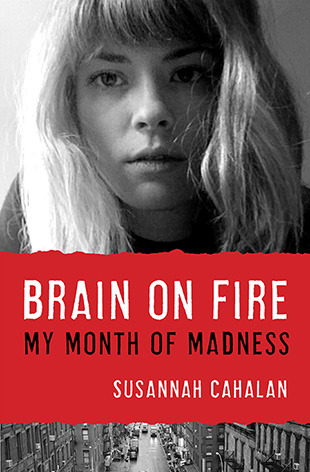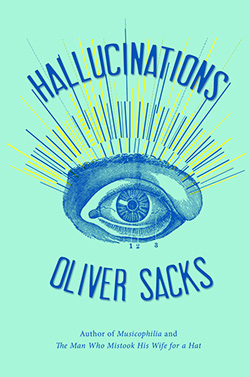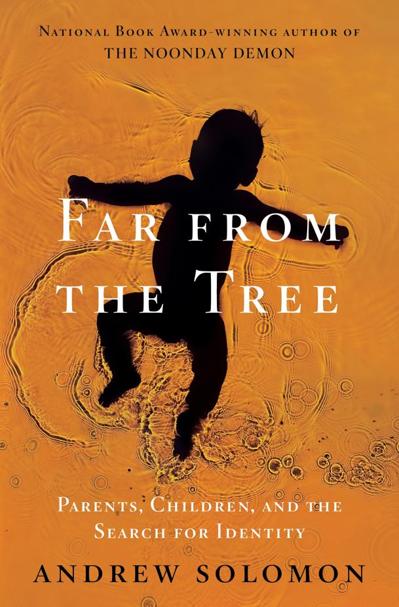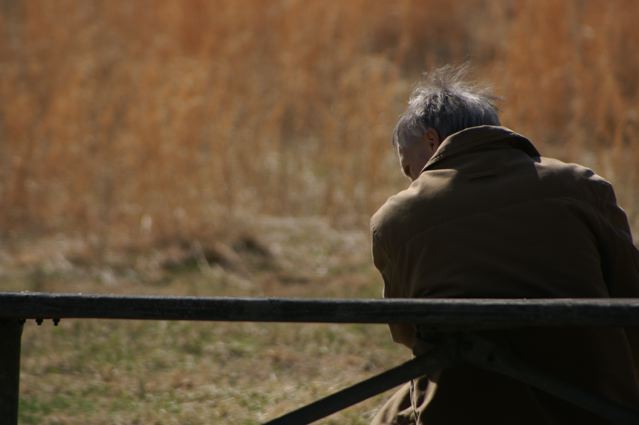new posts in all blogs
Viewing: Blog Posts Tagged with: Oliver Sacks, Most Recent at Top [Help]
Results 1 - 10 of 10
How to use this Page
You are viewing the most recent posts tagged with the words: Oliver Sacks in the JacketFlap blog reader. What is a tag? Think of a tag as a keyword or category label. Tags can both help you find posts on JacketFlap.com as well as provide an easy way for you to "remember" and classify posts for later recall. Try adding a tag yourself by clicking "Add a tag" below a post's header. Scroll down through the list of Recent Posts in the left column and click on a post title that sounds interesting. You can view all posts from a specific blog by clicking the Blog name in the right column, or you can click a 'More Posts from this Blog' link in any individual post.

By: Simon Turley,
on 10/9/2015
Blog:
OUPblog
(
Login to Add to MyJacketFlap)
JacketFlap tags:
Music,
Journals,
Memory,
brain,
neuroscience,
hallucinations,
neurology,
dementia,
*Featured,
Oliver Sacks,
Health & Medicine,
sensory memory,
brain journal,
Psychology & Neuroscience,
Keith Josephs,
musical hallucinations,
neurodegenerative,
neurologic disease,
Add a tag
It was midnight and I had just slumped into bed, exhausted after one of my first days on-call as a new intern, and still adjusting to life in a new apartment. As my nagging reflections on the day were just beginning to subside, insistent knocking at my door jolted me back to alertness. Dragging myself out of bed to open the door, I was surprised to see a diminutive elderly lady who appeared quite perturbed.
The post The music next door appeared first on OUPblog.
 We’ve collected the books debuting on Indiebound’s Indie Bestseller List for the week ending May 03, 2015–a sneak peek at the books everybody will be talking about next month.
We’ve collected the books debuting on Indiebound’s Indie Bestseller List for the week ending May 03, 2015–a sneak peek at the books everybody will be talking about next month.
(Debuted at #3 in Young Adult) An Ember in the Ashes by Sabaa Tahir: “Laia is a slave. Elias is a soldier. Neither is free. Under the Martial Empire, defiance is met with death. Those who do not vow their blood and bodies to the Emperor risk the execution of their loved ones and the destruction of all they hold dear.” (April 2015)
(Debuted at #7 in Hardcover Nonfiction) On the Move by Oliver Sacks: “With unbridled honesty and humor, Sacks shows us that the same energy that drives his physical passions—weight lifting and swimming—also drives his cerebral passions. He writes about his love affairs, both romantic and intellectual; his guilt over leaving his family to come to America; his bond with his schizophrenic brother; and the writers and scientists—Thom Gunn, A. R. Luria, W. H. Auden, Gerald M. Edelman, Francis Crick—who influenced him.” (April 2015)
(Debuted at #8 in Hardcover Fiction) Gathering Prey by John Sandford: “Lucas Davenport’s adopted daughter, Letty, is home from college when she gets a phone call from a woman Traveler she’d befriended in San Francisco. The woman thinks somebody’s killing her friends, she’s afraid she knows who it is, and now her male companion has gone missing. She’s hiding out in North Dakota, and she doesn’t know what to do.” (April 2015)
Author Lawrence Weschler struck up a friendship with author Oliver Sacks back in he late 70s and the two wrote to each other for years.
After some time, Sacks had agreed to let Weschler write his biography, and Weschler filled 14 notebooks about their meetings and conversations. But after a while the story got too personal, so Sacks asked Weschler to drop the project.
The 81 year-old Sacks revealed that he has a terminal form of liver cancer. in an heart felt piece in The New York Times back in February. In light of this development, Sacks agreed to let Weschler share some of their early stories and diary entries in Vanity Fair. Read an excerpt after the jump.
When we first meet I tell him he does not look the way I expected. \"My physical look changes radically over time,\" he replies. \"Sometimes I’m bearded; sometimes I’m not. Sometimes I weigh 190 pounds; sometimes I weigh 300.\" (\"That must be some beard,\" I say.) He is currently somewhat closer to 190. He has severe back problems, the result of several accidents (\"worldly infelicities\"), and when we go to dinner, a brief walk to a nearby fish restaurant, he carries along a square flat pillow (\"something of a cross between a prosthesis and a transitional object\").
Author Oliver Sacks has just discovered that he has a terminal form of liver cancer.
The 81 year-old author revealed the news in an heart felt piece in The New York Times. With so little time left, Sacks is inspired to make the most of the limited time he has left. “I have to live in the richest, deepest, most productive way I can,” he wrote, explaining his inspiration from philosopher David Hume, who wrote a short autobiography in a day after receiving similar news.
Here is more from Sacks’ piece:
I have been increasingly conscious, for the last 10 years or so, of deaths among my contemporaries. My generation is on the way out, and each death I have felt as an abruption, a tearing away of part of myself. There will be no one like us when we are gone, but then there is no one like anyone else, ever. When people die, they cannot be replaced. They leave holes that cannot be filled, for it is the fate — the genetic and neural fate — of every human being to be a unique individual, to find his own path, to live his own life, to die his own death.

By: Maryann Yin,
on 5/1/2014
Blog:
Galley Cat (Mediabistro)
(
Login to Add to MyJacketFlap)
JacketFlap tags:
Awards,
Elizabeth Gilbert,
Andrew Motion,
TED Talks,
Oliver Sacks,
Andrew Solomon,
Adam Rutherford,
Emily Mayhew,
Sarah Wise,
Add a tag
 Andrew Solomon has won the 2014 Wellcome Book Prize and £30,000 in prize money for his nonfiction work, Far from the Tree. The award organizers strive to honor both fiction and nonfiction books that focus on medicine and health.
Andrew Solomon has won the 2014 Wellcome Book Prize and £30,000 in prize money for his nonfiction work, Far from the Tree. The award organizers strive to honor both fiction and nonfiction books that focus on medicine and health.
Solomon worked on writing this book for ten years. In the past, he discussed his research in a popular TED talk called “Love, No Matter What.”
Sir Andrew Motion, chair of the judging panel, revealed in a statement that the judges unanimously selected Solomon’s book as the winner from a pool of six titles. The five other books that made it onto the short list includes The Signature of All Things by Elizabeth Gilbert, Wounded by Emily Mayhew, Creation by Adam Rutherford, Hallucinations by Oliver Sacks, and Inconvenient People by Sarah Wise. (Photo Credit: Annie Leibovitz)
New Career Opportunities Daily: The best jobs in media.

By: Powell's Staff,
on 9/11/2013
Blog:
PowellsBooks.BLOG
(
Login to Add to MyJacketFlap)
JacketFlap tags:
Biography,
Simon Wiesenthal,
Ellen Forney,
Elna Baker,
Jeanette Winterson,
Iceberg Slim,
Oliver Sacks,
Jo Ann Beard,
Joe Brainard,
Derf Backderf,
Alison Bechdel,
Lucy Grealy,
Harry Eyres,
Nicole Georges,
Marlo Thomas,
D J Waldie,
J Maarten Troost,
Jacob Hoye,
Javier Marias,
Jenna Miscavige Hill,
Karolyn Ali,
Larenn McCubbin,
Lisa Kron,
Lisa Pulitzer,
Michelle Tea,
Nathalie Sarraute,
Rudolf Rocker,
Shane Allison,
Guests,
Caroline Knapp,
Brian Doyle,
Ahmir Thompson,
Charles Willeford,
Graphic Novels,
Literature,
memoirs,
Peter Sis,
Jeannette Walls,
craig thompson,
Wendy McClure,
Jack Black,
Patti Smith,
Add a tag
In an age when everyone and their niece has written a tell-all book, when even fictional characters like Ron Burgundy are penning the stories of their lives, how does a memoir stand out among its peers? What qualities make it like nothing we've seen before? Sometimes truly extraordinary experiences can launch a memoir into uncharted [...]

Brain On Fire: My Month of Madness by Susannah Cahalan was one of O, The Oprah Magazine’s “10 Titles to Pick Up Now,” $25.

Hallucinations by Oliver Sacks. Have you ever seen something that wasn’t there? Heard someone call your name in an empty house? Sensed someone following you? Then definitely read this book! $27.

Far From The Tree: Parents, Children and the Search for Identity by Andrew Solomon is one of the New York Times Best Books of 2012. It tells the stories of parents coping with severe disabilities in their children and how they come to see these challenges as blessings. A beautiful and inspiring book. $21.

Buy Shoes on Wednesday and Tweet at 4:00 by Mark Di Vincenzo lets you know the best time to do EVERYTHING, $11.

By:
Beth Kephart ,
on 8/24/2012
Blog:
Beth Kephart Books
(
Login to Add to MyJacketFlap)
JacketFlap tags:
New Yorker,
jonathan franzen,
Newsweek,
Edward Hopper,
Truman Capote,
D.T. Max,
Mary Karr,
C.K. Williams,
In Cold Blood,
Oliver Sacks,
Gail Levin,
The Poetry of Solitude,
Joyce Carol Oates,
David Foster Wallace,
Add a tag
I had time, just now, that quiet time, of reading the magazines that came in last week. Oh, the stolen deliciousness of it all. In
The New Yorker, I read of Oliver Sacks on his years dedicated, in large part, to experimenting with large doses of amphetamines, morning-glory seeds, LSD, morphine, and all other manner of neuro-shifters. I thought of all the Sacks I have read these many years, of the seeming innocence of his beguiling childhood memoir,
Uncle Tungsten: Memories of a Chemical Boyhood, of his great empathy for patients and ferns and other earthly beings. His
New Yorker essay delves, skips, and buries time before it rushes, headlong, toward its hard stop. Sacks had discovered a book on migraines and it had become important to him. He had a revelation about migraines. He ...
... had a sense of resolution, too, that I was indeed equipped to write a Liveing-like book, that perhaps I could be the Liveing of our time.
The next day, before I returned Liveing's book to the library, I photocopied the whole thing, and then, bit by bit, I started to write my own book. The joy I got from doing this was real—infinitely more substantial than the vapid mania of amphetamines—and I never took amphetamines again.
Writing books, Sacks suggests, saved him. The next story I read, an excerpt from D.T. Max's much heralded biography of David Foster Wallace (in
Newsweek), suggests how writing would and would not save this genius. The excerpt, which focuses on Wallace's early correspondence with Jonathan Franzen as well as his infatuation with Mary Karr, suggests that this book is well worth reading as a whole. I've always been a huge D.T. Max fan, and I'm certain I will learn from these pages.
In between the Sacks and the Wallace, I found two poems of interest. Joyce Carol Oates has a chilling, compelling poem in
The New Yorker called "Edward Hopper's '11 A.M.,' 1926"�worth reading from beginning to end. Oates was one of several authors who contributed to one of my favorite poetry collections (a gift from my sister) called
The Poetry of Solitude: A Tribute to Edward Hopper (collected and introduced by Gail Levin). Clearly this project, all these years later, continues to inspire.
Finally, within the pages of this week's
New Yorker is a poem by C.K. Williams, one of my favorite living poets. I had the great pleasure and privilege, years ago, of interviewing C.K. in his Princeton home for a magazine story. Later, I saw him read at the Writer's House at Penn. He remains vital, interesting, experimental, and honest, and his new poem, "Haste," is a terrifying portrait of time. From its later phrases:
No one says Not so fast now not Catherine when I hold her not our dog as I putter behind her
yet everything past present future rushes so quickly through me I've frayed like a flag
Unbuckle your spurs life don't you know up ahead where the road ends there's an abyss? ...
My first corporate interview isn't until 1 this afternoon. I'm sitting down to read Truman Capote's
In Cold Blood. I figure it's time.
(That above, by the way, is my cat Colors, who lived with me for many years. She's climbing into my bedroom window. I'm eleven or twelve years old. And I'm reading on my bed as she pokes her pink nose in.)

By:
Beth Kephart ,
on 3/22/2011
Blog:
Beth Kephart Books
(
Login to Add to MyJacketFlap)
JacketFlap tags:
Lynn Hirschberg,
CK Williams,
Elif Batuman,
Lee Daniels,
Oliver Sacks,
English 135-302,
Geoffrey Wolff,
literary profile,
Frederick Busch,
Add a tag
Today in class, following our review of four student memoirs, we'll look ahead toward the literary profiles that the students will be writing as their final project. My instructions for the assignment are, as usual, simple enough (I include them below). Not quite as simple is shaping, with the students, standards of excellence, or measures against which such profiles might be judged. I loved, for example, Patti Smith's profile of Johnny Depp in a late 2010 issue of
Vanity Fair precisely because of the rugged, empathetic nature of her questions; Smith knows fame, she knows yearning, she knows loss, and she knows Depp, and by going beyond what she already knew (by asking the piercing personal and philosophical questions) she gave us an indelible, original portrait.
In Misgivings: My Mother, My Father, Myself, the poet C.K. Williams brings psychological acuity and a poet's ability to parse to his intimate renderings of those who shaped his world. We know Williams's mother, for example, by what he tells us she withholds, and why. "When my father was undergoing his illnesses, his absentmindedness, his depressions, (my mother) somehow managed never quite to submit to them: although she sympathized with him, wished he were better, was, you could tell, a little offended without ever saying so by his not being better, she still never manifested what was happening as something that really possessed her; she always kept back that corner of her feelings that might have made her suffer too much."
In her introduction to
The Possessed, Elif Batuman yields a portrait of the "first Russian person I ever met" that (by choosing just the right scenes, the right snips of dialogue, the dead-on, tell-tale italics) gives us an immediate sense not just of a man's infuriating but perhaps endearing idiosyncratic tics, but of the effect those tics had on Batuman herself. "Toward the end of one (violin) lesson, for example, he told me that he had to leave ten minutes early—and then proceeded to spend
the entire ten minutes unraveling the tortuous logic of how his early departure wasn't actually depriving me of any violin instruction. 'Tell me, Elif,' he shouted, having worked himself up to an amazing degree. 'When you buy a dress, do you buy the dress that is most beautiful...or the dress that is made with the most cloth?'"
Oliver Sacks, especially in
The Man Who Mistook His Wife for a Hat, makes effective use of clinical language and telling dialogue to bring his real-life characters to the page. Frederick Busch uses a novelist's touch—vivid, unexpected details, the lean of impression against the stacking of facts—to invigorate portraits of people like his father and Terrence des Pres. In
The Duke of Deception, Geoffrey Wolff juxtaposes known facts against purported ones to give us a man, his own father, who sought to deceive all on every topic save for the power and importance of love.
I'm going to be reading segments from those books to the students today. Additionally, I've asked them to read, on their own, Lynn Hirschberg's
New York Times Magazine profile of Lee Daniels, the so-smart, so-sensational, and (to use her word) audacious director/part producer of the Oscar-winning film "Precious" (among other things). The students have downloaded t
he Hirschberg story (in these waning days of being able to download NYT files, though, hey, I am a paper subscriber and will still have privileges) and, I hope, they've played the video o




 Andrew Solomon has won the 2014 Wellcome Book Prize and £30,000 in prize money for his nonfiction work, Far from the Tree. The award organizers strive to honor both fiction and nonfiction books that focus on medicine and health.
Andrew Solomon has won the 2014 Wellcome Book Prize and £30,000 in prize money for his nonfiction work, Far from the Tree. The award organizers strive to honor both fiction and nonfiction books that focus on medicine and health.





Writing and reading totally saves me. Writing keeps the dark away. Reading is the infusion of light.
Much to ponder here.
Not sure you will be able to concentrate on your corporate interview after being immersed in In Cold Blood. You might want to put back some light by reading some poetry.
I have not read In Cold Blood either. I'll wait for your impressions. I'm ready the book club book and woefully behind in it...since the meeting is tomorrow and I'm only halfway done
I've not read In Cold Blood either, but I'm so glad you had some time to yourself this morning to really read. :)
What wonderful reads. I have loved many of Sacks' books. I wasn't aware of his earlier drug use.